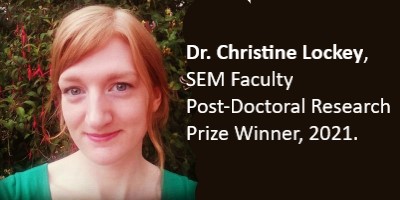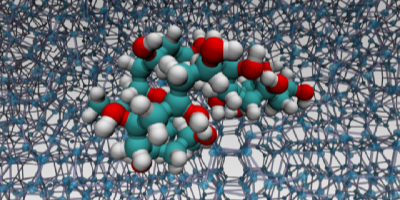News Library
Dr Alex Baker wins RSC Prize for Excellence in Higher Education
Dr Alex Baker is named winner of the RSC’s Early Career Prize for Excellence in HE in recognition of brilliance in chemistry education. bit.ly/4fRBPye
Four Warwick Chemists win prestigious Royal Society of Chemistry prizes
Professors Reinhard Maurer, Scott Habershon, Tim Bugg, and Sébastien Perrier, have been recognised for their contributions to Chemistry.
Dr Matt Jenner Wins RSC Felix Franks Biotechnology Prize
The RSC Biotechnology Group Committee has named Dr Matt Jenner as winner of the 2024 RSC Felix Franks Biotechnology MedalLink opens in a new window
Matt Jenner wins £1.25 million UKRI Future Leaders Funding
Dr Matthew Jenner in the University’s Department of Chemistry has received £1.25 million for the project ‘Dissecting and Harnessing Carrier Protein Interactions in Fungal Megasynth(et)ases’. Read moreLink opens in a new window
Production Polysaccharides at the Cell Surface
The Stansfeld groupLink opens in a new window, in SLS and Chemistry, have published two papers in the journal Nature on the production of polysaccharides around cells.
Congratulations to Prize-winner, Dr Christine Lockey

Congratulations go to Dr Christine Lockey, who has been announced as a Faculty Post-Doctoral Research Prize winner for “Best Warwick affiliated research output in 2020”.
Solving the puzzle of polymer-ice binding for cryopreservation

When biological material is frozen, cryoprotectants are used to prevent ice damage. How do newly emerging polymeric cryoprotectants control ice formation and growth during freezing?
Soil bacteria hormone discovery provides fertile ground for new antibiotics
The discovery of how hormone-like molecules turn on antibiotic production in soil bacteria could unlock the untapped opportunities for medicines that are under our very feet.
An international team of scientists working in the Department of Chemistry, the School of Life Sciences and the Warwick Integrative Synthetic Biology Centre at the University of Warwick, UK, and Monash University, Australia, have determined the molecular basis of a biological mechanism that could enable more efficient and cost-effective production of existing antibiotics, and also allow scientists to uncover new antibiotics in soil bacteria.
It is detailed in a new study published in the journal Nature.
New company, CryoLogyx, is spun out from the Department
A new biotechnology company, CryoLogyx, has been spun-out from the department, supported from a grant from InnovateUK. Cryologyx will be led by Dr Tom Congdon (A UoW UG and PG alumus) and will exploit technology developed by the GibsonGroup. Cryologyx will use innovative macromolecular (polymeric) cryoprotectants to protect biological samples, including cells used in therapy, diagnostics and drug discovery.
Read the news story here and more details will be released soon.
Dixon Group publishes first molecular description of VanS binding site within vancomycin antibiotic, offering potential in future therapeutic engineering
Resistance has emerged to vancomycin, a last-resort antibiotic for treatment of MRSA. The VanSR regulatory system induces expression of resistance genes upon exposure; however, the mechanism of vancomycin detection was unclear. Through solution NMR and other biophysical methods, we reveal a direct interaction between vancomycin and the extracellular domain of VanS from Streptomyces coelicolor. The VanS-binding epitope within vancomycin was mapped to a region distinct from the binding site for Lipid II. In targeting a separate site, the effective VanS ligand concentration includes both free and lipid-bound molecules, facilitating VanS activation. This is the first molecular description of the VanS/vancomycin interface, and could direct engineering of future therapeutics.
